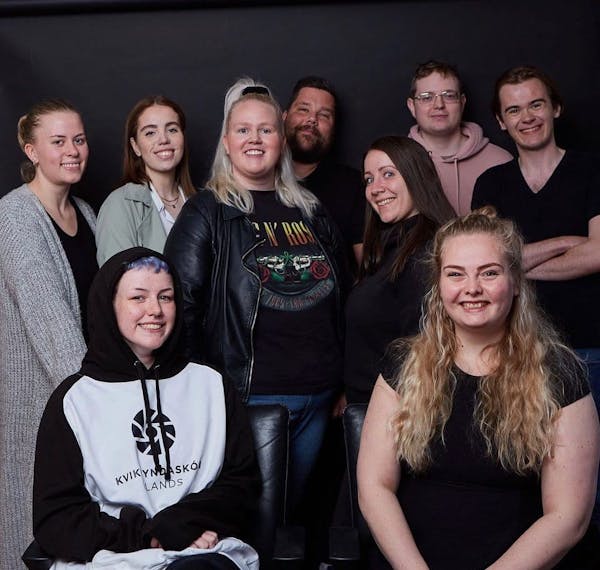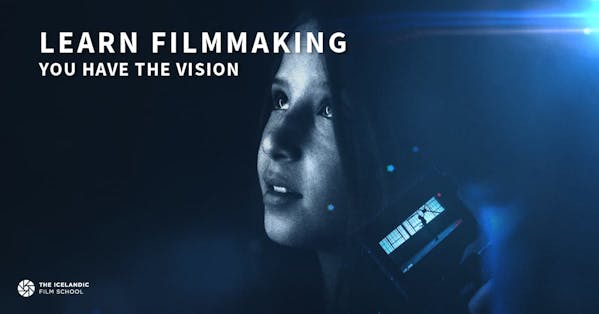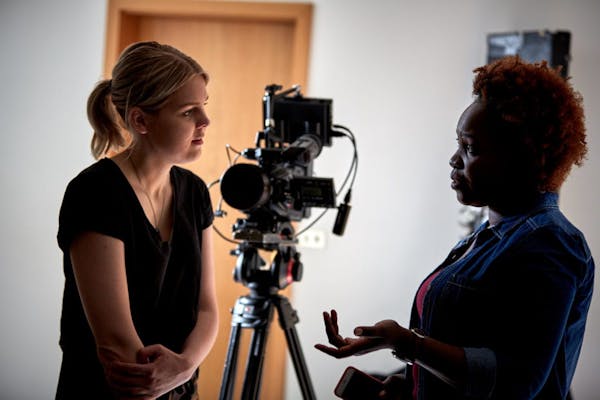Academia meeting at The Icelandic Film School
A formal academia meeting was held for the first time on May 6th 2021 at the film schools meeting hall. Bodvar Bjarki Petursson, Chairman of the school board and Chairman of the University Transference Committee, chaired the meeting and started with an introduction.
The meeting covered the main transformations associated with the university transfer and the systems that need to be carefully considered in this regard. The recruitment systems and progress of academic staff were also examined in particular, and a general discussion was encouraged to harmonize the knowledge of professionals who serve key roles within the educational institution.
The origins of academia
The meeting began with general information and discussion about the origins of academia. The origins of German, French and British universities were also examined. At the beginning of the 19th century, the British school marked a school policy where the student was at the forefront, the French had society and the state, while the German Humboldt school in Berlin had science and the common search of students and teachers for knowledge as its cornerstone. By transferring science to art, the management of the Film School believes that Humboldt's policy is best suited to the school's new university status. The university community and the work of the students, teachers and staff of the Film School are therefore dedicated to service and conversation with the arts.
A clear connection to the industry
After a general discussion about the academic policy, emphasis was shifted to general progress within the institution. There was a consensus among the group that the school maintains a strong connection with the film industry. The mainstay of the teaching team and management is, and has always been, composed of working artists who are also active in the industry. The professional opinion of the meeting guests is to maintain a strong connection to the industry.

Guaranteed access to qualified instructors
The conversation also led to a discussion on how to ensure the school's constant access to the most qualified individuals in the film industry. Emphasis is put on qualified instructors having good access to the school. At the same time, there will always be a vigorous search for professionals to maintain quality within the teaching team. The nature of the industry and the school's personnel policy offer a constant staff turnover of filmmakers and actors who apply for jobs at the Film School between projects. Hilmar Oddsson, Head of Directing, suggested at the meeting that appointments to main positions be at least four years to ensure stability in key departments.
Increased number of employees
The school now teaches 107 courses per semester. With the introduction of a foreign department (IFS), the number of courses will double and in the near future about 200 courses will be taught each semester. It is estimated that about 80 to 120 part-time teachers will be hired for a semester with specialties where experience is required. Such a large number of employees calls for good and close communication with the industry.
Advancement in academic positions
Next, there was talk of advancement in academic positions. The council will hold 16 quarter positions for name accreditations; lecturers, associate professors and professors. These positions are intended to place great emphasis on research. A full salary position can be obtained through the interplay of the position head of department, teaching and accreditation positions. However, there can also be a variety of part-time job opportunities. The system is intended to be a support and connection to working professionals, who also work at the school.
The Chairman of the Board also discussed the traditional career path, where research positions will require teaching in three to five courses. The minimum would be a two-year period with good reviews. Following two years of teaching, it will then be possible to request progress to the vacant position of subject director. However, it calls for an exception with the first appointments this autumn, which will be at least associate professors. Subsequently, senior lecturers will be hired. The process will continue to be examined and will be specifically scrutinized, among other things, as to which way is best for the arrival of foreign visiting professors and where teaching and research will meet.
The Chairman's closing comments were:
"We are only competing with ourselves and that entails a lot of freedom. I know the ability and ambition of our team; teachers, staff and students, will carry us far. "


